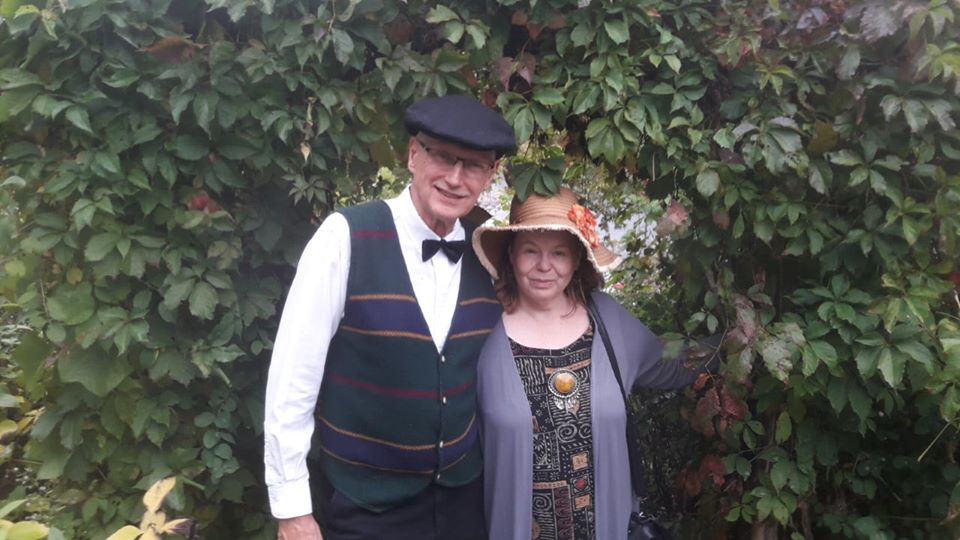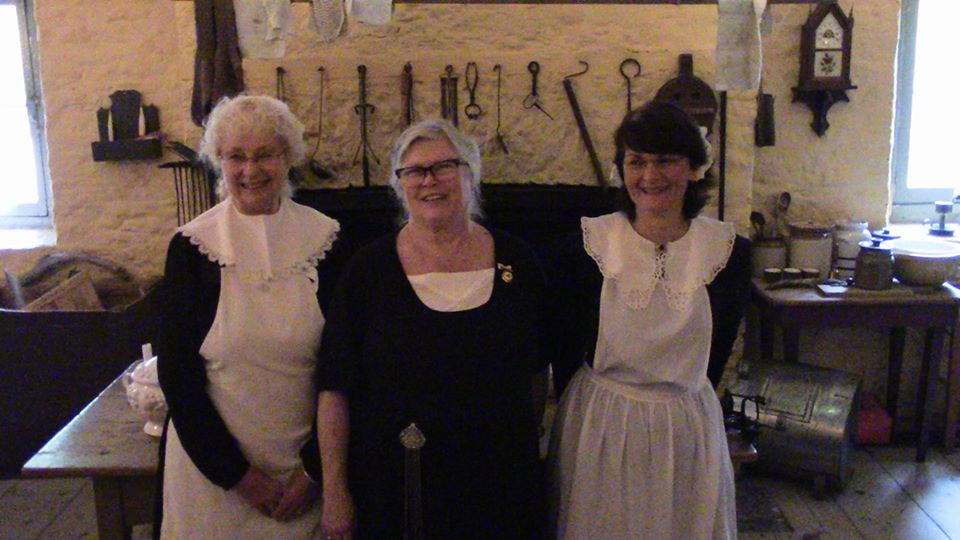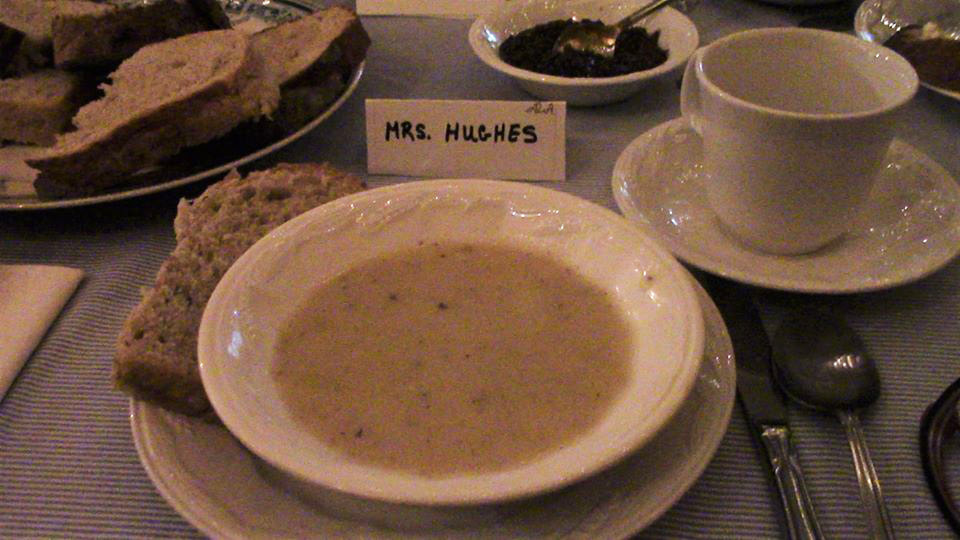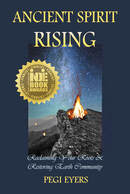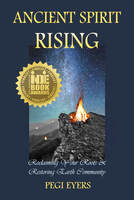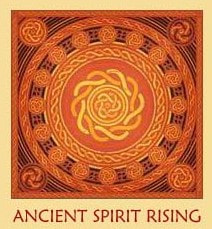PEGI EYERS
So this is what can come from having a thespian as a partner LOL. Attending a "Downton Abbey Servants Luncheon" held by our local historical society recently with Robert Greenman Hood was a lot of fun, but it also became an opportunity to think about the relationship between Britain and the British diaspora, a monumental divide between those who are essentially the same people. Eight generations in on Turtle Island, my English heritage flows through my fatherline, and Robert has a German father and English mother. Here in our homogenous fast-paced consumer world, heritage has lost importance to the point that Canadians and Americans rarely think about our roots at all.
But whether we have spent time in the UK or not, we can still feel a tremendous longing for "Mother England" and those small touches of a homeland forever gone - circling around the periphery of English mores, language, expressions, customs, foods, social relations and material culture, without ever fully belonging, or knowing the full picture. There is a magnetic pull, and elements of English life can feel nourishing to the soul.
Even within the Downton Abbey servant class, the success of one person became the success of all - which is the remnant of a collective care, cohesiveness, and closeness in tribal life going back millennia. This mutual support in community is long gone, and yet another attractive longing we feel is the reassuring structure of everyone knowing their place in the social order - a empowering feeling of belonging that has also disappeared in today's world. Is our engagement with these longings and ambiguities also a search for redemption? On a soul level, we really don't know why we left Britain, and there is no real invitation to return.
But whether we have spent time in the UK or not, we can still feel a tremendous longing for "Mother England" and those small touches of a homeland forever gone - circling around the periphery of English mores, language, expressions, customs, foods, social relations and material culture, without ever fully belonging, or knowing the full picture. There is a magnetic pull, and elements of English life can feel nourishing to the soul.
Even within the Downton Abbey servant class, the success of one person became the success of all - which is the remnant of a collective care, cohesiveness, and closeness in tribal life going back millennia. This mutual support in community is long gone, and yet another attractive longing we feel is the reassuring structure of everyone knowing their place in the social order - a empowering feeling of belonging that has also disappeared in today's world. Is our engagement with these longings and ambiguities also a search for redemption? On a soul level, we really don't know why we left Britain, and there is no real invitation to return.
Yes, we may be in the diapora, but we are not a people of denial. Britain has been the "eye of the hurricane" - the colonial Empire that enacted genocide and ecocide across the globe to change the world forever. Among other criminal acts, the "British Home Children" of the Industrial Revolution (our own families) were shipped to the "new world" through a child slavery program. Why would we want to be part of such an oppressive hierarchal regime? We may be the same people and share the same DNA, but the colonial patterns of harm and trauma, especially in brutal racist policies and socioeconomic hegemonies with "the haves and the have-nots" are ongoing, and are Britain's legacy to the world.
Has our longing for a homeland become just another fantasy, like a a great meal or an exciting movie - and a cosplay we engage in from time to time, one of a series of entertainments that have no lasting value? And yet the heart has a knowledge of its own that cannot be denied. We ARE cultural orphans, but in our deep knowing we are still embraced and held, by our British Ancestors.
But what is the motherland, and do we even want it?
Has our longing for a homeland become just another fantasy, like a a great meal or an exciting movie - and a cosplay we engage in from time to time, one of a series of entertainments that have no lasting value? And yet the heart has a knowledge of its own that cannot be denied. We ARE cultural orphans, but in our deep knowing we are still embraced and held, by our British Ancestors.
But what is the motherland, and do we even want it?
| Pegi Eyers is the author of "Ancient Spirit Rising: Reclaiming Your Roots & Restoring Earth Community," an award-winning book that explores strategies for intercultural competency, healing our relationships with Turtle Island First Nations, uncolonization, recovering an ecocentric worldview, rewilding, creating a sustainable future and reclaiming peaceful co-existence in Earth Community. Available from Stone Circle Press or Amazon. |
